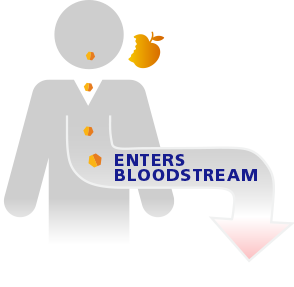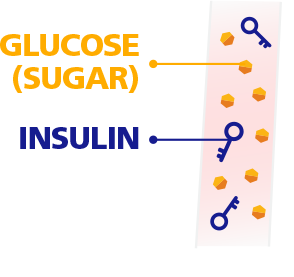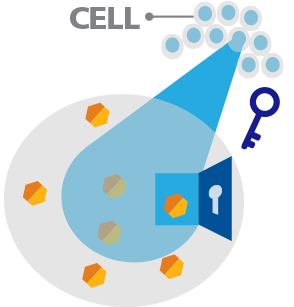What Is Type 2 Diabetes?
An overview of type 2 diabetes
Diabetes occurs when the body does not make enough insulin and/or doesn't respond to insulin properly.
How food, sugar, and insulin work in the body
 How Food Sugar Insulin Work
How Food Sugar Insulin Work
Your body breaks down certain foods you eat into a type of sugar called glucose.
This sugar (glucose) enters your bloodstream and travels to different cells in your body.
Insulin acts like a key, opening the cells in order to let the sugar move out of your blood and go into your cells. The sugar is then used by your cells for energy.
Your body breaks down certain foods you eat into a type of sugar called glucose.
This sugar (glucose) enters your bloodstream and travels to different cells in your body.
Insulin acts like a key, opening the cells in order to let the sugar move out of your blood and go into your cells. The sugar is then used by your cells for energy.
With type 2 diabetes
- Your body’s insulin doesn’t work the way it should to get sugar out of your blood and into your cells
- Instead of entering your body’s cells, the sugar builds up in your blood
- This can lead to diabetes-related complications over time

Anyone can get type 2 diabetes, but some people are at greater risk than others
Some common risk factors include:
Being overweight or obese
Having a family member such as a parent, brother, or sister who has diabetes
Being a member of a high-risk ethnic group, which includes African Americans, Asian Americans, Hispanics, and Native Americans
Your age and a sedentary lifestyle
GLP-1 is another important hormone that helps lower blood sugar
GLP-1 stands for glucagon-like peptide-1. This hormone is produced in the gut and is released in response to the food you eat. The GLP-1 hormone can:
- Increase the amount of insulin your pancreas releases when food is absorbed in the stomach and intestines. The increased insulin lowers blood sugar levels
- Stop the liver from releasing sugar into the blood when it’s not needed
- Slow the movement of food through the stomach so sugar enters the blood more slowly
GLP-1 treatment works like your body's naturally occurring GLP-1. Talk to your healthcare provider about why a GLP-1 pill may be right for you.
Get your A1C DOWN with RYBELSUS®
Once-daily RYBELSUS® is proven to significantly lower A1C.
Pay as little as $25 for up to a 3-month RYBELSUS®
prescriptiona
Check your insurance coverage and learn about ways to save.
aTo receive offer, 7 mg or 14 mg dose prescription must be for a 1-, 2-, or 3-month supply. For 3 mg dose, pay as little as $25 each month. Eligible, commercially insured patients with product coverage only. Maximum savings of $100 per 1‑month supply, $200 per 2‑month supply, or $300 per 3‑month supply. Eligibility and other restrictions apply.
Support to help you start and stay on RYBELSUS®
RYBELSUS® Connect offers support when and where you need it. Textb READY to 21848 to get started.
aTo receive offer, 7 mg or 14 mg dose prescription must be for a 1-, 2-, or 3-month supply. For 3 mg dose, pay as little as $25 each month. Eligible, commercially insured patients with product coverage only. Maximum savings of $100 per 1‑month supply, $200 per 2‑month supply, or $300 per 3‑month supply. Eligibility and other restrictions apply.
bMessage and data rates may apply. Check with your mobile service provider. Message frequency will be based on your selections. Text HELP to 21848 for help. Text STOP to 21848 to quit. See Terms and Conditions of Use.
What is RYBELSUS®?
RYBELSUS® (semaglutide) tablets 7 mg or 14 mg is a prescription medicine used:
- along with diet and exercise to improve blood sugar (glucose) in adults with type 2 diabetes.
- to reduce the risk of major cardiovascular events such as heart attack, stroke or death in adults with type 2 diabetes mellitus who are at high risk for these events
It is not known if RYBELSUS® is safe and effective for use in children
Please see Prescribing Information and Medication Guide for RYBELSUS®.
RYBELSUS® is a prescription medication.
You are encouraged to report negative side effects of prescription drugs to the FDA. Visit www.fda.gov/medwatch or call 1-800-FDA-1088.



